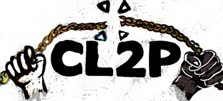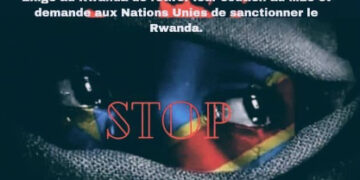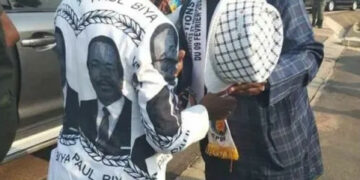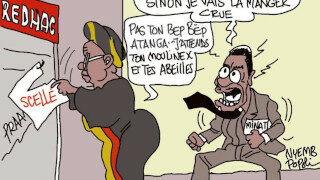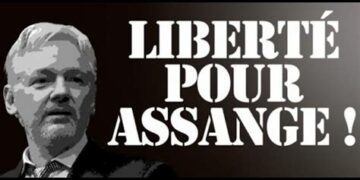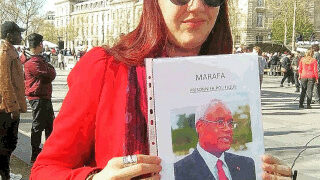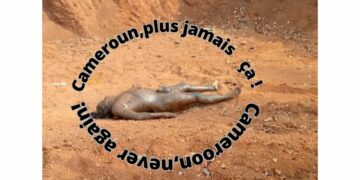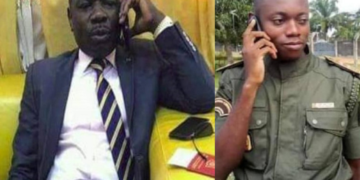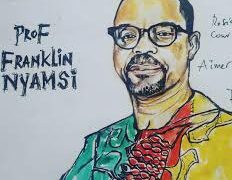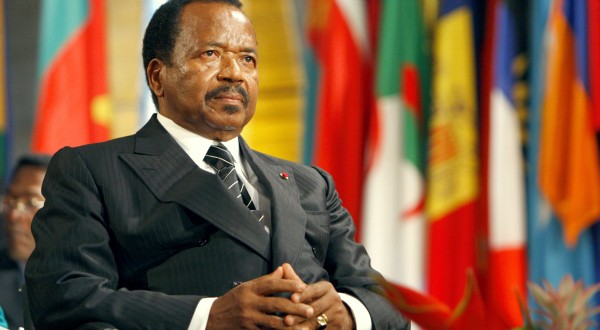The groups that received training from officers and soldiers have been active in Israeli Naval Commando elite units, Shayetet, which also provided them with Israeli weapons. More than a year ago, the Cameroonian dictator’s groups have started fighting and suppressing activists and members of Boko Haram movement in the English-speaking areas of the country.
According to Walla website which published the report on Thursday, Biya has confronted the rebellion in the English-speaking provinces. By using particular special forces. According to human rights organisations, these units are responsible for killing demonstrators and raping female students.
The English-speaking regions in Cameroon, which were under French colonialism in the past, have been subjected to prejudice and discrimination by the authorities and the government for dozens of years. A year and a half ago, the citizens started protesting and demonstrating against these practices, until the President of Cameroon decided to suppress these voices and protests by force of arms, and for that purpose, he used Israeli expertise and training as well as Israeli weapons.
Read: Is Israel exchanging arms for refugees with Rwanda?
Since October 2016, Cameroon has been witnessing a difficult political crisis in the provinces bordering Nigeria. Demonstrations and protests have started with strikes by teachers, human rights activists, lawyers and university professors. However, the security authorities of the Cameroonian dictator have tried to suppress the protests by force.
According to witnesses and statements by human rights activists, some demonstrators were killed and executed on the ground with live ammunition. Universities, colleges, commercial facilities and houses have also been subjected to raids and incursions, crimes were committed, and female students were raped. Added to all this was the execution of wide arrest campaigns.
Among the forces that have been active in the field is the Bear unit, a rapid intervention battalion which is directly subordinate to the dictator, Paul Biya, who took office in 1982 and still controlling the state till now. These forces and the rapid intervention battalion were established and formed in 2001 to combat criminal organisations, but they later also participated in the fight against the terrorist group Boko Haram, and recently supervised the process of suppressing demonstrations and protests.
Local media defines the rapid intervention unit as an “Israeli unit” par excellence, not only because its members were armed with Israeli weapons and rifles, as documented in videos and photos published in the media, but also because they were trained by IDF reserve soldiers in Israeli army.
Read: Israel to expand use of firearms among settlers
The training of the rapid intervention unit was supervised by Israeli IDF Reserve soldier Avi Sevan, a former officer in the Duvdevan elites unit. He also served as the Israeli military attaché in Cameroon. He was an advisor to the President of Cameroon and supervisor of the rapid intervention unit until he died in a Helicopter crash in 2010.
This month, human rights activists, including lawyer Itai Mak, petitioned the Israeli Supreme Court to stop the export of Israeli security industries to the Cameroonian rapid intervention unit. However, past experience proved that the Israeli courts do not intervene or resolve such cases and matters that are related to the relationship of the dictatorial regimes with the security and military industries.
The website quoted the lawyer as saying “This is not just about the export of Israeli security and military equipment to Cameroon, but the intervention of the Israeli Ministry of Security in the political affairs of a foreign country. This intervention is an example of a new colonialism.”
In response to the information, the Israeli Ministry of Security said: “The supervision on the issue of the export of products and equipment of the Israeli security and military industries is being tightened according to various considerations, including the human rights and freedom in the country to which the arms will be exported.”
The ministry added: “During the decision-making process, there is a cooperation and coordination with the Ministry of Foreign Affairs which directly supervises the external relations of Israel. The Foreign Ministry as well as the Ministry of Security take into consideration the rights and freedoms of the states to which the weapons are exported.”
Read: Israel’s Netanyahu heckled over arms sales to Myanmar
The north-western and south-western regions include English-speaking population, equivalent to about 20 percent of Cameroon’s total population, which, for more than a year, has been experiencing a profound social and political crisis that has progressively escalated into an armed conflict.
The Cameroonian president threatened to eliminate all the demonstrators whom he considered are fighting to divide his country or using it as a cover to launch armed attacks on neighbouring countries.
He added that his mission is to preserve public security, social peace and the unity and safety of his country. He issued directives to relentlessly fight all those who carry arms or call for violence and bring them to trial.
It is noteworthy that the English-speaking Cameroonians demonstrated at the beginning of October 2017, which coincides with the anniversary of their independence from Britain, because of what they describe as the abuse and neglect by the government of President Biya, which is dominated by the French-speaking members. These protests have become a point which unites the opposition against the rule of Biya which has continued for 35 years.
